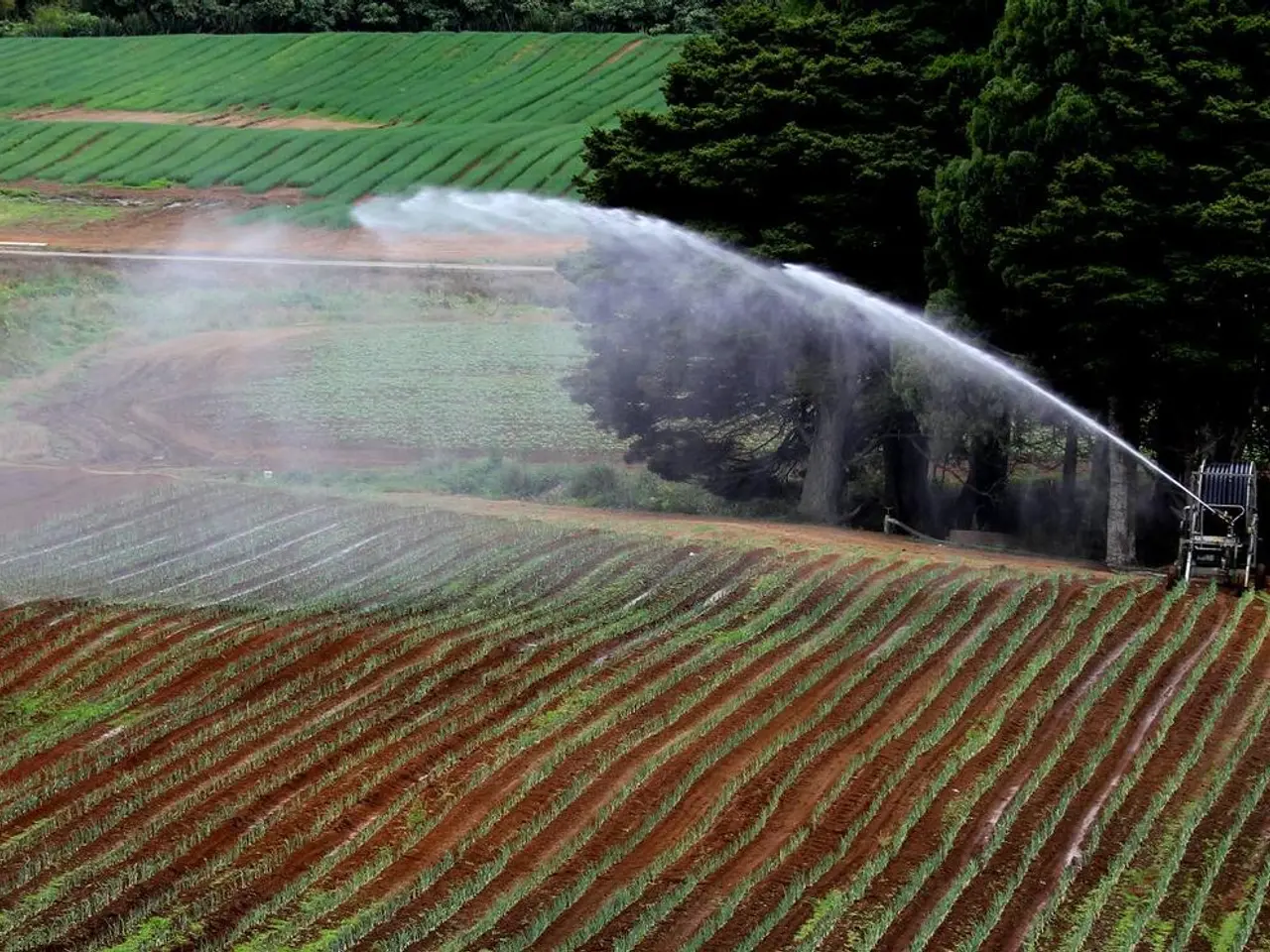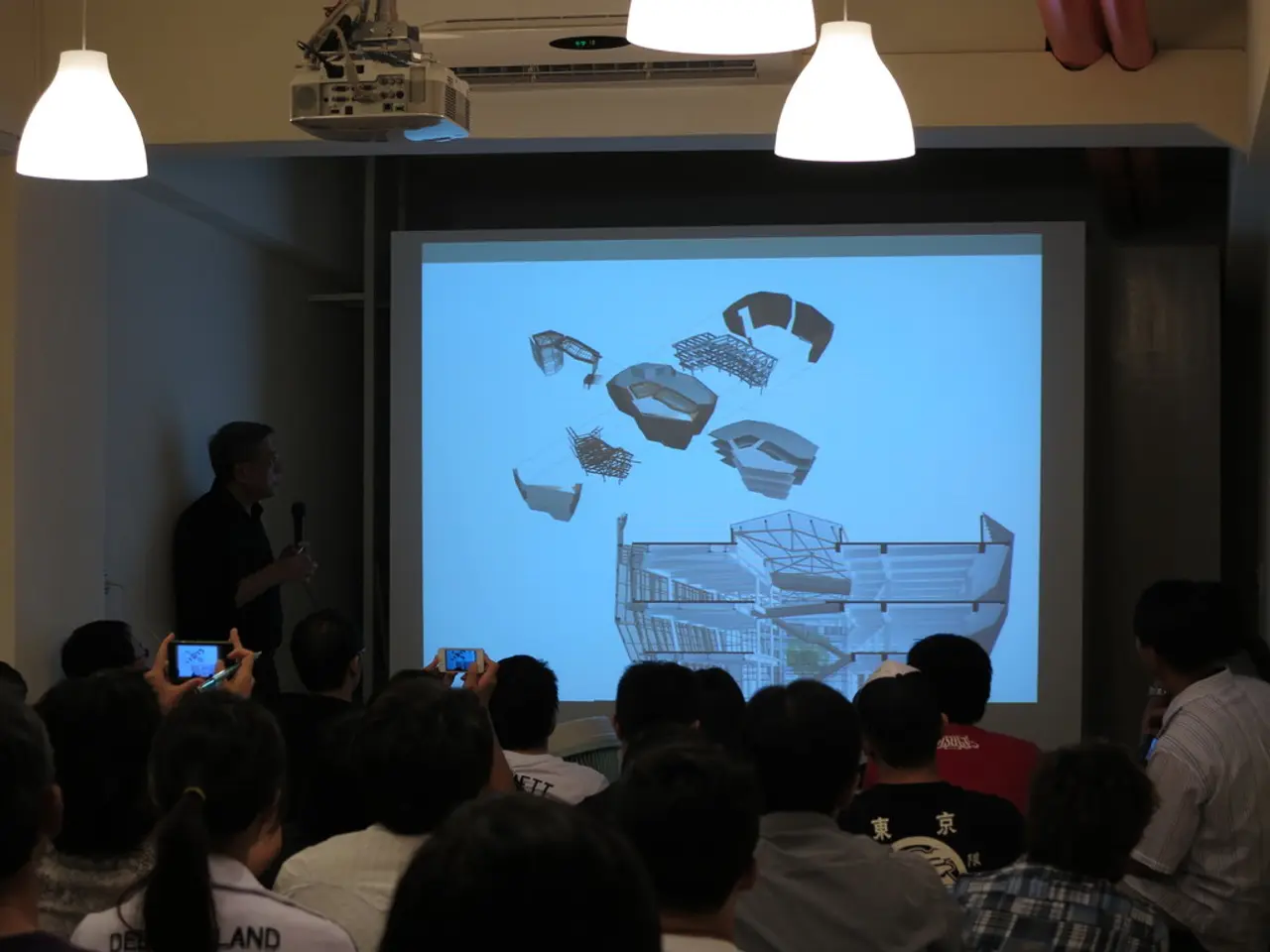Improving Productivity in Modern Agricultural Equipment Today
In the ever-evolving world of agriculture, a modern approach is gaining traction - Precision Agriculture. This innovative method leverages technology to manage crops and soil more effectively, promoting efficiency, cost savings, and environmental protection.
One key aspect of Precision Agriculture is the use of smart farming tools. These tools, designed to increase efficiency and crop yields, include sensors, advanced machinery, remote sensing technologies, and data integration platforms.
Sensors play a crucial role in Precision Agriculture. Soil moisture sensors, for instance, measure water content to optimize irrigation and avoid waste. Similarly, soil nutrient and pH sensors assess soil health for targeted fertilization. Weather and climate sensors provide real-time environmental data, while optical sensors monitor light conditions for photosynthesis optimization. Pest and disease detection sensors identify infestations early, reducing crop loss, and livestock monitoring sensors help manage animal health and productivity.
Advanced machinery, such as autonomous tractors and robotic harvesters, navigate fields using AI and machine learning. These machines optimize planting depth and seeding density, perform selective harvesting of ripe crops, and operate continuously without fatigue. This not only reduces labor needs but also increases precision and sustainability, minimizing greenhouse gas emissions.
Remote sensing technologies, like satellite imagery and drone technology, offer large-scale monitoring of crop growth and environmental impacts. Satellite imagery provides an overview, while drone technology offers high-resolution, field-specific data on plant health, soil condition, and weed infestations.
Data integration platforms combine GPS, IoT sensors, AI, and geospatial data. These digital systems drive decision-making throughout the entire precision agriculture cycle, from soil preparation through harvesting. They improve resource use efficiency and boost yields while lowering costs and environmental impact.
Energy-efficient farming equipment, such as electric tractors and solar-powered pumps, also plays a part in this sustainable approach. These machines reduce greenhouse gas emissions, contributing to a greener farming future.
Moreover, farm management apps help organize data and track farm performance. These tools provide farmers with valuable insights to make data-driven decisions, saving time, and reducing costs.
The future of sustainable farming practices involves the integration of robots, drones, and data analytics for seamless farm management. Automated farming machinery provides consistent results and reduces labor needs, freeing up resources for other farm tasks.
In conclusion, Precision Agriculture offers a data-driven, precise, and sustainable approach to farming that maximizes crop yields and operational efficiency by tailoring interventions to specific field conditions and crop needs. By adopting these practices, farmers can ensure a more efficient, cost-effective, and environmentally friendly farming future.
- The smart farming tools implemented in Precision Agriculture, which include sensors and data integration platforms, are designed to enhance quality and efficiency in crop production.
- The advanced machinery used in Precision Agriculture, such as autonomous tractors and robotic harvesters, employs technology to improve the quality of farming practices by ensuring precision, reducing greenhouse gas emissions, and freeing up resources for other farm tasks.




